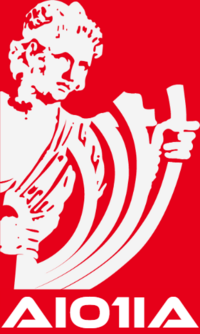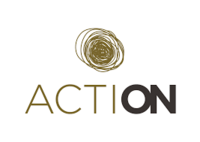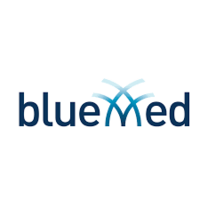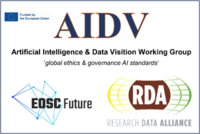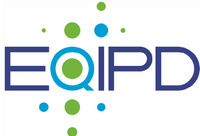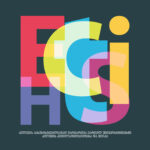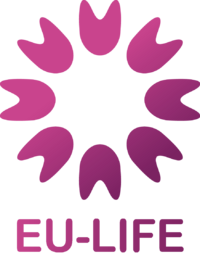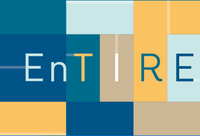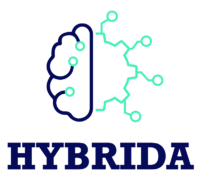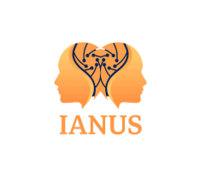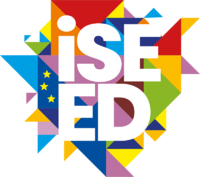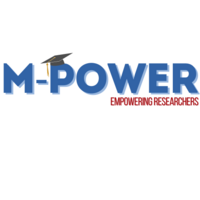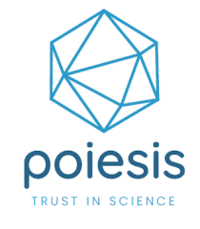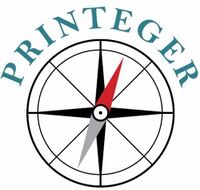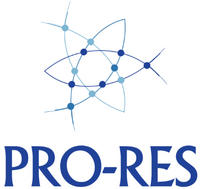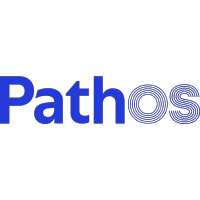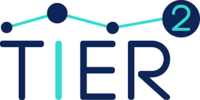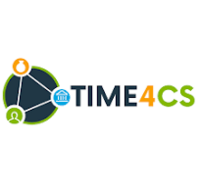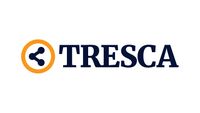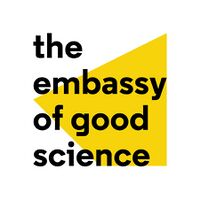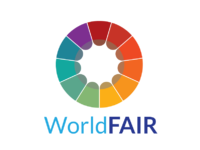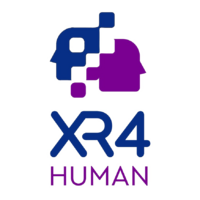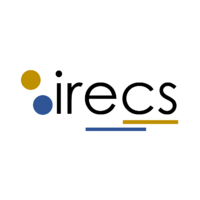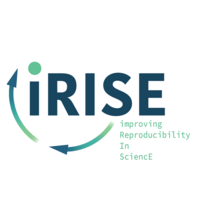Initiative
From The Embassy of Good Science
- Choose a category:
- Guide (14)
- Initiative (57)
- Instruction (160)
- Interactive Content (5)
- Report (16)
- Resource (1859)
- Theme (199)

Initiative
Projects that support research ethics and integrity.
AIOLIA is a Horizon Europe project that transforms the EU AI Act’s ethical principles into practical tools for researchers, developers, and policymakers. Through real-world use cases, AIOLIA develops co-created guidelines, modular training materials, and interactive content like podcasts and chatbots. These resources are made accessible via the Embassy of Good Science. With a strong European foundation and global partnerships, including universities and UNESCO platforms in Asia, Africa, and North America, AIOLIA promotes culturally aware, socially robust, and ethically sound AI development. It empowers communities to implement responsible AI practices grounded in real-world relevance and global impact.
ALLINTERACT was a Horizon 2020 project (2020–2023) focused on expanding and diversifying citizen engagement in science, especially among young people and groups that are often excluded from scientific participation. It examined how increasing public awareness of the social impact of research can transform people’s willingness to engage into active involvement. The project concentrated on key societal challenges such as quality education and gender equality, using methods like social media analysis, surveys, focus groups, and real-world interventions. Through this work, ALLINTERACT developed new insights and practical, replicable strategies for motivating a broader range of citizens to interact with, contribute to, and benefit from scientific research.
ACTION (Participatory science toolkit against pollution) was a three-year Horizon 2020 project (2019–2022) that aimed to democratise citizen science around environmental pollution. It supported dozens of grassroots “pilot” projects via an accelerator, providing funding, mentoring, training, and infrastructure. It also developed an open-access toolkit full of methods, guidelines, and digital tools to help citizens and researchers co-create, run, and sustain inclusive science projects ensuring rigorous data, community engagement, and long-term impact. Furthermore, it built a framework to measure the social, environmental, economic, and policy impact of citizen science, promoting responsible research and innovation.
ALLEA (All European Academies) is the European Federation of Academies of Sciences and Humanities, bringing together around 60 academies from more than 40 European countries. Founded in 1994, it works at the interface of science, policy, and society to improve research conditions, provide independent science advice to policymakers and the public, and promote scholarly collaboration across disciplines and borders. As a non-profit association registered under German law, ALLEA is fully independent of political, religious, or commercial influence. It champions scientific integrity, academic freedom, and evidence-based decision-making in Europe.
BEYOND Bad Apples: Towards a Behavioural and Evidence-Based Approach to Promote Research Ethics and Research Integrity in Europe. BEYOND is a Horizon Europe project dedicated to exploring the root causes of research misconduct, developing effective methodologies for impactful training, and creating and enhancing training materials. This project contributes to Europe's ongoing efforts to cultivate a research culture that upholds the highest standards of ethics and integrity, thereby fostering public trust in science.
Please have a look at the project's deliverable here.
Bridging Integrity in Higher Education, Business and Society (BRIDGE) is an Erasmus+ funded project, it is a multidisciplinary three-years project (2020-2023).
Academic integrity, research integrity, integrity in business, integrity in society are usually described as separate fields. In this project, we seek to create a bridge between them in order to reach a broader understanding of interrelated aspects of integrity between these fields. The target groups of this project are early career researchers, i.e. master and PhD students, and their supervisors.
The BlueMed Initiative is a collaborative research and innovation effort among Mediterranean countries aimed at ensuring a healthy, resilient, and productive Mediterranean Sea. It brings together national and EU-level marine research strategies under a common agenda to support sustainable “blue” growth. This includes promoting marine-based economic opportunities, protecting biodiversity, developing innovative coastal and maritime technologies, and improving the overall management of marine resources. BlueMed also strengthens cooperation across countries by creating platforms for knowledge sharing, policy alignment, and joint action on key challenges such as pollution, climate change, and ecosystem degradation. Through this coordinated approach, the initiative works to enhance scientific understanding and drive sustainable development in the Mediterranean region.
CATALISI (Catalysation of Institutional Transformations of Higher Education Institutions) is an EU-funded project launched in 2023 to support universities in implementing their own strategies for institutional change. It does this by offering “acceleration services” like Living Labs, counselling, community of practice, and predictive studies, focused on three core areas: research careers and talent development, open science and public engagement, and sustainable research and education. By fostering co-creation, peer learning, and capacity building, CATALISI helps higher-education institutions rethink their governance, adapt to societal challenges, and align with European Research Area priorities.
CHAllenges and innovative chaNGes in research Ethics Reviews (CHANGER) is a three-year Coordination and Support Action (CSA) project, funded by the European Union’s Horizon WIDERA programme aiming to promote changes in research ethics reviews by strengthening the capacities of researchers to incorporate ethical judgements in the project design and implementation, and by supporting capacity building of Research Ethics Committees (RECs) to address new challenges posed by new technologies and new research practices.
Evidence and Gap Map (EGM)
The collected evidence base was used to create Evidence and Gap Map (EGM) – systematic and visual presentation of the availability of evidence for the identified challenges to ethics review. In this way, critically appraised evidence is provided in a clear and actionable format to all stakeholders. Rows represent the selected topics, and columns represent the challenges to ethics reviews. The data was visualised using Python (3.8.19) and Matplotlib library.COALESCE is a four-year European project (2023–2027) focused on creating a European Competence Centre for Science Communication along with a Science Communication Academy. Its goal is to strengthen the connection between science and society by improving the quality, accessibility, and impact of science communication across Europe. The project works to build trust in research and counter misinformation by developing evidence-based resources, tools, and training programs co-created with scientists, communicators, policymakers, journalists, and civil society. Although the Competence Centre will operate virtually, it is supported by national and regional hubs that bring together diverse expertise. By integrating knowledge from past initiatives and promoting inclusive, interdisciplinary approaches, COALESCE aims to professionalize science communication and make it more effective and socially responsive across Europe.
CONCISE is a Horizon 2020 project that investigates how science communication shapes European citizens’ beliefs, perceptions, and knowledge about controversial science topics like vaccines, complementary and alternative medicine, GMOs, and climate change. It carried out deliberative public consultations with about 500 participants across five EU countries Portugal, Spain, Italy, Slovakia, and Poland, to explore which communication channels people trust, how they form their opinions, and how to foster more effective, inclusive, and trustworthy dialogue between scientists, media, policy makers, and the general public.
The DIAMAS Project has released a set of international recommendations and guidelines to support Diamond Open Access (OA), a scholarly publishing model where neither authors nor readers pay fees. These guidelines were developed over two years through consultations with diverse stakeholders such as institutions, funders, and policymakers, and are structured around three strategic themes: strengthening research cultures, ensuring financial sustainability, and addressing power and legitimacy dynamics in publishing communities. The framework is designed to be flexible, enabling organizations to adapt the recommendations to their own contexts while encouraging collaboration, policy alignment, and resource sharing to build a resilient, community-led Diamond OA ecosystem.
EARMA (European Association of Research Managers and Administrators) is a professional association that brings together research managers and administrators across Europe and beyond. Its mission is to strengthen, professionalize, and raise the recognition of research management as a vital role in the research ecosystem. EARMA supports its community through networking, training, and advocacy, while also influencing policy at national and European levels.
The European Data Protection Board (EDPB) is an independent EU body tasked with ensuring the consistent application of data protection laws across Europe, particularly under the GDPR. It brings together the heads of national data protection authorities and the European Data Protection Supervisor to cooperate on enforcement and guidance. The EDPB issues guidelines, recommendations, and best practices to clarify data protection rules, provides formal opinions on legislation and regulatory matters, and can make binding decisions to resolve cross-border disputes.
As a network of networks, ENERI brings together researchers and other relevant stakeholders from two important fields: Research Ethics (RE) and Research Integrity (RI). ENERI started in 2016 as a three-year Horizon 2020 project. The project ended in 2019, but the network of networks is still alive and is a great support for the RE and RI community in exchanging, collaborating, and joining forces
ENRIO (European Network of Research Integrity Offices) is an association of experts and national research integrity offices across Europe committed to promoting and safeguarding research integrity. It facilitates the exchange of best practices, develops guidelines to handle misconduct, offers training and education on ethical research, and supports countries without formal national integrity structures. ENRIO also builds partnerships with other organizations to harmonize standards, increase transparency, and strengthen institutional capacity for ethical research.
The EOSC-Future/RDA Artificial Intelligence and Data Visitation Working Group (AIDV-WG) has focused on addressing ethical, legal, and social challenges of Artificial Intelligence (AI) and Data Visitation (DV) affecting of state-of-the art data technology impacting scientific exchange in the context of data sharing and the European Open Science Cloud (EOSC).
The EQIPD consortium developed a Quality System for preclinical research to boost innovation.
Responsible Conduct of Research – Research Integrity and Ethics in Georgian Universities (ETHICS)
The aim of the national structural reform project ‘Responsible Conduct of Research – Research Integrity and Ethics in Georgian Universities (ETHICS)’ is to launch a systemic improvement intervention to improve the quality of University and Research-Performing Organizations (RPOs) research through launching measures to adhere to the foundations of high-quality research and excellence.
EU-LIFE is a collaborative alliance of more than a dozen leading European life science research institutes dedicated to strengthening excellent, open, and responsible scientific research across Europe. Established to promote cooperation, the alliance works to improve research policies, funding systems, and scientific careers by providing a collective voice in European research and innovation debates.
EU-LIFE supports knowledge exchange through thematic working groups focused on areas such as research strategy, training, science communication, gender equality, research assessment, technology transfer, and sustainability. By sharing best practices in research management and infrastructure, the network helps institutions enhance their efficiency, competitiveness, and international visibility. It also advocates for fair and transparent research environments, open science practices, strong ethics, and inclusive research cultures that support diversity and career progression.
EnTIRE: developing The Embassy platform for the Research integrity and ethics communities
Embedding a comprehensive ethical dimension to organoid-based research and related technologies
IANUS is a Horizon Europe funded project focused on strengthening justified trust in science, research, and innovation through inclusive and co-creative approaches that reflect societal needs and values. Emphasizing value-driven and participatory research, it encourages scientists to address global challenges while staying responsive to public concerns. Building on insights from related initiatives, IANUS analyzes the dynamics of trust in science, develops conceptual frameworks, and promotes engagement between researchers and citizens. By offering policy recommendations and creating interactive platforms for collaboration, the project aims to rebuild confidence in the scientific community and foster stronger connections between science and society.
INTEGRITY: Empowering students for Responsible Research Conduct (RCR) through evidence-based, scaffolded learning.
ISEED (Inclusive Science & European Democracies) is a Horizon 2020 research project (2021–2024) that explores how lessons from citizen science can be used to foster more inclusive, deliberative democracies in Europe. It investigates democratic participation along four dimensions , knowledge, institutions, technology, and emotion using empirical research like focus groups, discourse analysis, and digital tool development. Led by Ca’ Foscari University of Venice and involving partners across Europe and beyond, ISEED runs experiments and co-creates mechanisms for citizen engagement, especially around science-based policy debates such as climate change and public health.
A healthy research culture supports the practice of responsible science. However, the role of (research) culture is often underestimated or difficult to change. The goal of the (em)power groups to improve research culture project is to improve research culture. To this end, we are developing in two years’ time a conversation tool that allows research groups/departments to think and reflect on responsible research with the aim of raising awareness about the influence of research culture on the behavior of scientists how (young) scientists can change this culture. This conversation tool will use a novel series of videos and will be tailored to the needs within various disciplinary fields at departmental level. By actively seeking out departments needs and by offering the developed tool at department or research group meetings, we aim to reach a large group of early career scientists to empower them to speak up.
NERQ is a new initiative that results from two EU projects, namely Path2Integrity and Integrity. NERQ stands for network for education in research quality, and takes a broad perspective on research quality, namely that high standards in research integrity, research ethics, open science and responsible research & innovation meet in training and courses for students and researchers throughout various stages of their career.
PATTERN (Piloting Open and Responsible Activities and Trainings Towards the Enhancement of Researchers’ Networks) is a 42-month Horizon Europe project that promotes open and responsible research and innovation (Open RRI) by developing and piloting training activities for researchers at all career stages. The project identifies and builds training modules around eight key transferable skills: open access, FAIR data management, research integrity, science communication, dissemination and exploitation of results, citizen science, management and leadership, and gender/non-discrimination/inclusion in research. It co-designs these trainings with institutions through mapping workshops and “Open Studio” cycles, and offers them on a digital platform where learners can access the materials freely. PATTERN also generates policy recommendations to encourage institutions and funders to embed Open RRI practices in their training programmes.
PERITIA (Policy, Expertise, and Trust in Action) was an EU-funded Horizon 2020 project (2020–2023) that studied how people trust experts and what makes expertise trustworthy. The multidisciplinary team – including philosophers, scientists, psychologists, policy experts and media specialists – explored how emotional, social, and normative factors influence trust in experts, beyond just their competence or reputation. Using climate change as a test case, PERITIA combined theoretical analysis with empirical research (surveys, lab studies, and citizen forums) to develop tools and indicators for evaluating trustworthiness. The project produced a “Trustworthiness Toolkit,” policy recommendations, and made its data publicly available through a Trust Hub.
POIESIS is a three-year Horizon Europe funded project dedicated to tackling the growing societal mistrust in science. It studies how research practices grounded in integrity, transparency, and active involvement of citizens and stakeholders throughout the research process can influence public trust in science, research, and innovation. By promoting collaboration between researchers and society, POIESIS has develop strong policy recommendations that enhance credibility, openness, and co-creation in scientific work. Ultimately, the project seeks to build a more trustworthy and participatory research ecosystem that reinforces the connection between science and society.
The “Pro‐active Pandemic Crisis Ethics and Integrity Framework ” (PREPARED), has developed an operational research ethics and integrity framework which safeguards key ethical values, supports a rapid and effective research response to crises. The key output of the project are presented in this page and include (among others):
- a global code of conduct for research during pandemics;
- a global code of conduct for research in fragile settings;
- prioritization and fast-track guidance for research ethics committees;
- harassment briefings for researchers;
- an ethics brief on facilitating researcher mobility;
- a case study training app;
- and many educational resources.
PRINTEGER is a project funded by the European Union in the framework of Horizon 2020. Its mission is to enhance research integrity by promoting a research culture in which integrity is part and parcel of what it means to do excellent research, and not just an external and restrictive control system. To promote such a culture, an improved governance of integrity and responsible research has to be informed by practice: the daily operation of researchers and the tensions of a complex research system. PRINTEGER will contribute to improve adherence to high standards of integrity in research warranting high levels of public support for the sciences. In the short term, it will do so by improving integrity policies of national and international research organisations, but also by providing better tools for research leaders and managers. In the longer term, PRINTEGER will contribute to improve ethical awareness and reflection through the education of new generations of scientists with next generation educational tools. Immediate contributions of PRINTEGER will include raised attention for realistic and effective integrity measures through dissemination, including a large conference, and immediate trial and use of much improved educational resources for teaching research ethics to future and young scientists.
Researchers, policymakers, and regulators face numerous challenges when it comes to conducting responsible research and innovation across various fields. These challenges encompass ethical practices, regulatory inconsistencies and data protection legislation complexities. With this in mind, the EU-funded PRO-RES project aims to provide a comprehensive, flexible and durable guidance framework. Designed to cover a wide range of non-medical sciences, this framework will offer practical solutions complying with the highest research ethics and integrity standards. By incorporating successful examples and best practices, PRO-RES will establish strong links with existing projects, contributing to post-2020 European strategic funding policy and promoting responsible research engagements. Ultimately, this initiative will empower policymakers to make more effective use of non-medical scientific research information.
With the European research landscape rapidly changing, nowadays, it is becoming increasingly essential to emphasise the virtue of research integrity and to start handling new scientific techniques in a comprehensible way.
Research integrity is a constituent of more innovation, growth and high-quality jobs. It leads to more efficient, appropriate, useful and reliable scientific evidence for policy-makers and entrepreneurs, where decisions based on research results lead to a better future.
PathOS (Open Science Impact Pathways) is a Horizon Europe research project (2022–2025) that seeks to understand, map, and quantify the effects of Open Science by uncovering the causal pathways linking Open Science practices to their outcomes in science, society, and the economy. Through six detailed case studies, the project develops new indicators, data-driven methods, and a cost-benefit analysis framework to assess costs and benefits of Open Science. Its goal is to provide evidence-based policy recommendations and tools to help funders, institutions, and policymakers make informed decisions to maximize the positive impact of Open Science.
Environmental and climate-related challenges are global and reach all sectors of society. However, research and innovation (R&I) activities that address these challenges, may carry substantial unintended implications. RE4GREEN aims to contribute to a European Research Area ethics and integrity framework for R&I activities designed to reduce the risk from such implications and to support the transition to a sustainable economy and society as envisioned by the European Green Deal. RE4GREEN will reflect diverse stakeholder views and relate them to cross-cutting environmental and climate ethics issues by applying a bottom-up social lab methodology. RE4GREEN’s framework will consist of operational research ethics and integrity guidelines, recommendations, and training materials for researchers, ethics and integrity experts and advisors, and ethics reviewers to ensure R&I activities support the Green Transition.
RETHINK #scicomm was a Horizon 2020 project that reimagined science communication in Europe by studying how digital platforms have reshaped the field and how citizens make sense of science in that environment. It created local “Rethinkerspaces” in seven countries to map who communicates about science, how, and why. Through action-research with these hubs, the project developed quality criteria, strategies, and training to strengthen openness, reflexivity, and trust in science communication. RETHINK produced policy recommendations, training resources, and reflective frameworks to foster deeper, more inclusive, and adaptive dialogue between science and society.
The Researcher Identity Development: Strengthening Science in Society Strategies (RID-SSISS) project aims not only at helping Early Career Researchers (ECRs), that is doctoral students and postdocs, to develop as researchers.
It also seeks to provide them with the educational resources for acquiring the high-level competences and skills they need to act as researchers in a complex, highly competitive and interdisciplinary context. Such context calls for a new conceptualization of research and a new researcher profile. The RID-SSISS aims to contribute in this direction through the design, implementation and dissemination of training and resources. Moreover, the project has the added value of promoting participatory research and innovative proposals that foster transdisciplinary research among doctoral students and early career researchers.
ROSiE is a three-year project funded by HORIZON2020. Its mission is to co-create with all related stakeholders novel practical tools to foster a responsible open science and citizen science.
SHERPA is a European research project that examines how smart information systems especially AI and big data analytics affect ethics and human rights. Through stakeholder engagement (interviews, surveys, Delphi studies) and creative formats like case studies and artistic representations, SHERPA maps out the key ethical challenges of these technologies. It also develops practical tools including a workbook on responsible SIS development and proposes technical, regulatory, and governance options to promote more sustainable, human-centred information systems.
The SIENNA Project (Stakeholder-Informed Ethics for New Technologies) was a Horizon 2020 initiative that addressed ethical and human-rights challenges in three emerging tech domains: human genomics, human enhancement, and AI & robotics. The project combined stakeholder input from citizens, experts, civil society, and policymakers with rigorous ethical, legal, and social analysis. Based on this, it developed ethical frameworks, research-ethics protocols, professional codes of conduct, and recommendations for better regulation. The aim was to guide responsible innovation in these transformative technologies by promoting human rights, accountability, and inclusive governance.
SOPs4RI (Standard Operating Procedures for Research Integrity) aims to stimulate and foster responsible research practices across European Research Performing and Funding Organisations (RPOs and RFOs) with a toolbox that includes a collection of easy-to-use Standard Operating Procedures and Guidelines that these organisations can use to develop their own Research Integrity Promotion Plans.
TIER2 (enhancing Trust, Integrity and Efficiency in Research through next-level Reproducibility) will increase reproducibility of scientific research results that will bring trust, integrity, and efficiency to the European Research Area (ERA) and the global Research and Innovation (R&I) system. The project will boost knowledge on reproducibility, create tools, engage communities, implement interventions and policy across different contexts to increase re-use and overall quality of research results. TIER2 aims to build an evidence-base on the extent and efficacy of existing reproducibility practices and co-create new tools to enhance reproducibility across diverse contexts.
Publications from and relating to the TIER2 project can be found here.
TIME4CS (Supporting sustainable Institutional Changes to promote Citizen Science in Science and Technology) is a Horizon 2020 project (2021–2023) that helps research organizations (like universities and institutes) redesign their governance, culture, and resources to better support public engagement and citizen science. It defines four key “intervention areas” research, education & awareness, infrastructure, and policy & assessment and works with experienced institutions (“Front-Runners”) and early adopters (“Implementers”) to develop tailored roadmaps for change. Through mutual learning, knowledge exchange, and evaluation, TIME4CS aims to create long-lasting, inclusive, and systemic institutional transformations that embed citizen science into everyday research.
TRESCA (Trustworthy, Reliable and Engaging Scientific Communication Approaches) was an EU-funded Horizon 2020 project that explored how to rebuild public trust in science. It focused especially on communication around social science and humanities research connected to digitalization, addressing hot-button issues like misinformation, digital safety, environmental health, and the future of work. The project used large-scale experiments, surveys, and qualitative dialogue to understand trust dynamics, and created three main tools: an animated science-communication video, a prototype “misinformation widget” for secure communication platforms, and a MOOC aimed at scientists, journalists, and policymakers to foster more credible and engaging science communication.
The TRUST Project was an EU-funded initiative designed to strengthen global research ethics and prevent “ethics dumping” where researchers apply lower ethical standards in underprivileged settings. It brought together a diverse, international consortium including academic scholars, civil society organizations, funders, and policymakers to co-create tools and mechanisms with vulnerable communities to improve research governance. Key outputs include a Global Code of Conduct for Research in Resource-Poor Settings, an online fair-contracting tool for research collaborations, and a compliance & ethics follow-up system tailored to resource-constrained contexts.
TechEthos (Ethics for Technologies with High Socio-Economic Impact) is a three-year EU-funded project that project that deals with the ethics of the new and emerging technologies anticipated to have high socio-economic impact. TechEthos aims to facilitate “ethics by design”, namely, to bring ethical and societal values into the design and development of new and emerging technologies from the very beginning of the process.
TiGRE (“Trust in Governance and Regulation in Europe”) is a Horizon 2020 research project that explores how trust is built, maintained, or lost in European regulatory systems. It focuses on three key sectors finance, food safety, and data protection across different levels of governance. The project brings together a multidisciplinary team of academics and practitioners to study interactions among regulators, firms, interest groups, courts, and citizens. Using a mixed-methods approach (surveys, experiments, case studies, focus groups, media analysis), TiGRE aims to uncover the drivers of trust, develop indicators of declining trust, and propose scenarios and policy recommendations to help institutions strengthen trust in regulation.
The School of Medicine in Split was established as an independent faculty on 26th March 1997. It is one of the components of the University of Split.
VERITY is a three-year Horizon Europe project, which works to strengthen public trust in science by examining the complex ‘ecosystem of trust’ where trust is built, challenged, and maintained. In response to growing misinformation, public scepticism, and changing roles of scientific actors, VERITY introduces ‘Stewards of Trust’ (SOTs)—key individuals and institutions across eight domains, including science education, communication, and policy—whose actions and collaboration are essential for fostering public trust in science.
VIRT2UE: A European Train-the-Trainer Programme for Teaching Research Integrity
The WorldFAIR Project is a Horizon Europe initiative led by CODATA and the Research Data Alliance, dedicated to advancing the FAIR data principles (Findable, Accessible, Interoperable, Reusable) across disciplines and globally. It works through 11 case studies spanning fields like chemistry, nanomaterials, health, geochemistry, biodiversity, urban health, disaster risk, and cultural heritage to develop FAIR Implementation Profiles (FIPs) tailored to each domain. The project also defines a Cross-Domain Interoperability Framework (CDIF) to support seamless, machine-actionable data exchange, and produces policy recommendations and assessment guidelines to benchmark FAIRness in different research communities.
XR4Human is a three-year Horizon Europe project (2022–2025) that promotes the ethical and human-centered development of Extended Reality (XR) technologies. It aims to co-create living guidelines addressing policy, regulation, governance, and interoperability issues in XR to build public trust and support a competitive European XR ecosystem. Key deliverables include a European Code of Conduct for inclusive XR, a repository of test cases demonstrating best practices, a rating system for XR experiences, and an educational toolbox for informed user decision-making. The project engages industry, regulators, developers, and users to ensure XR design reflects human rights, privacy, well-being, diversity, and accessibility.
Ethics in research is an essential ingredient for good science. Maintaining high ethical standards is essential to winning public trust in scientific work. However, there are many challenges such as new technologies, increasing international collaboration in academic research and the absence of standardisation across Europe. The EU-funded irecs project will reinforce the reliability of science by advancing research ethics expertise and competencies. It will improve the understanding of research ethics in Europe and provide interactive, sustainable training programmes. Building on the European Network for Research Ethics and Research Integrity and the Embassy of Good Science as well as close collaboration with key stakeholder organizations, irecs will create a horizontal community unifying research ethics practitioners, policymakers and other stakeholders.
The project has produced four policy briefs, on AI in health and healthcare, extended reality, genome editing, and biobanking providing advice on how to improve research ethics expertise in practice. A fifth policy brief provides recommendations on implementing research ethics governance at Higher Education Institutions (HEIs) and Research Performing Organizations (RPOs).
You can have a look at the project's deliverables here.iRISE — improving Reproducibility In SciencE is a Horizon Europe–funded research initiative dedicated to understanding, investigating and guiding strategies to address irreproducibility across the sciences. iRISE engages diverse stakeholders to understand the theoretical basis of reproducibility, conduct evidence syntheses, test interventions to strengthen reproducibility in research, and develop integrative evidence frameworks. Central to its approach is the embedding of equity, diversity, and inclusion (EDI) principles, ensuring that recommended practices are effective, fair, and accessible across different researcher communities. Through its collaborative ethos and alignment with open science and integrity values, iRISE is dedicated to advancing shared goals around reproducible scholarship and evidence-based reform.
PRO-Ethics: Participatory Real Life Experiments in Research and Innovation Funding Organisations on Ethics

